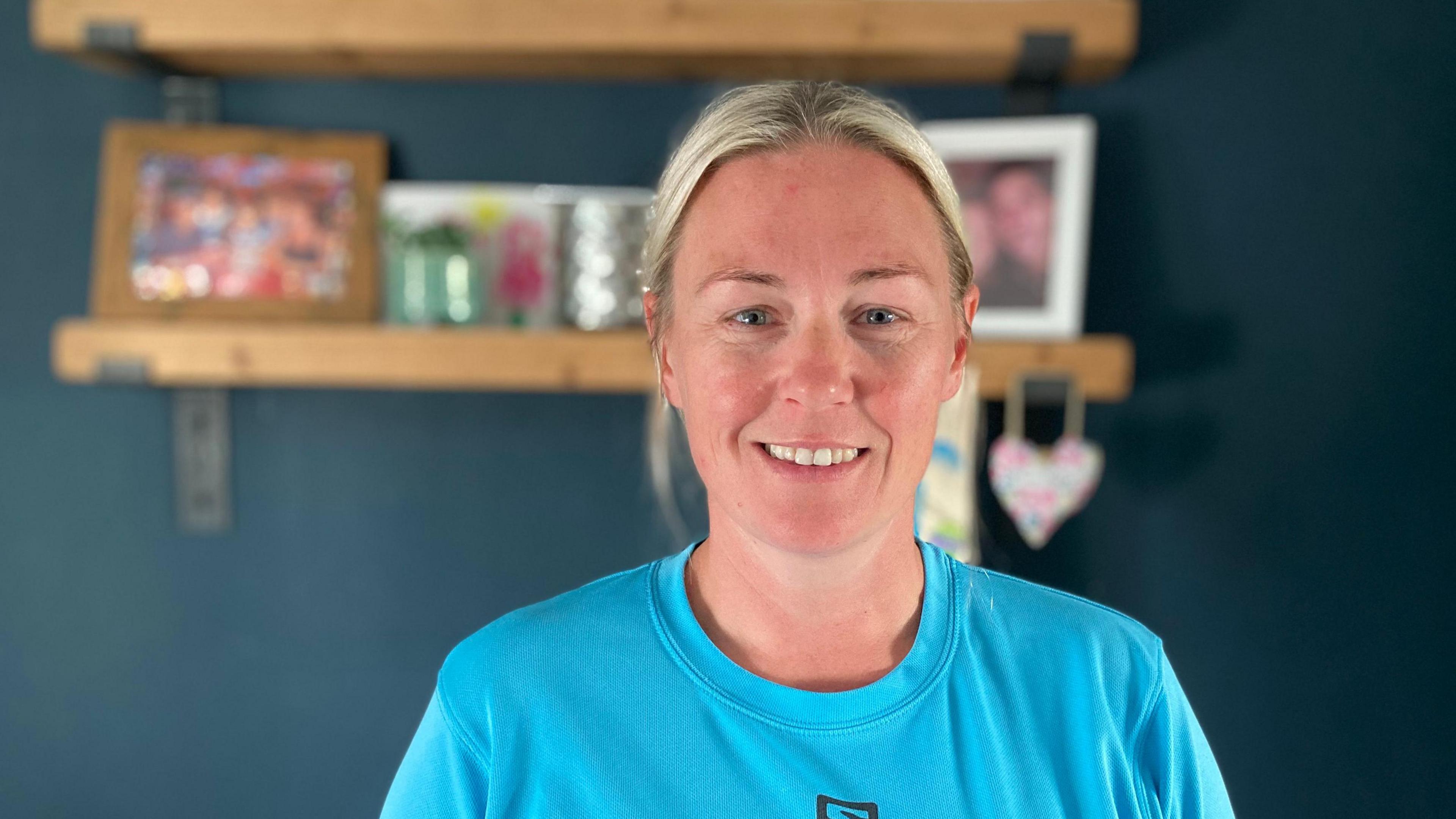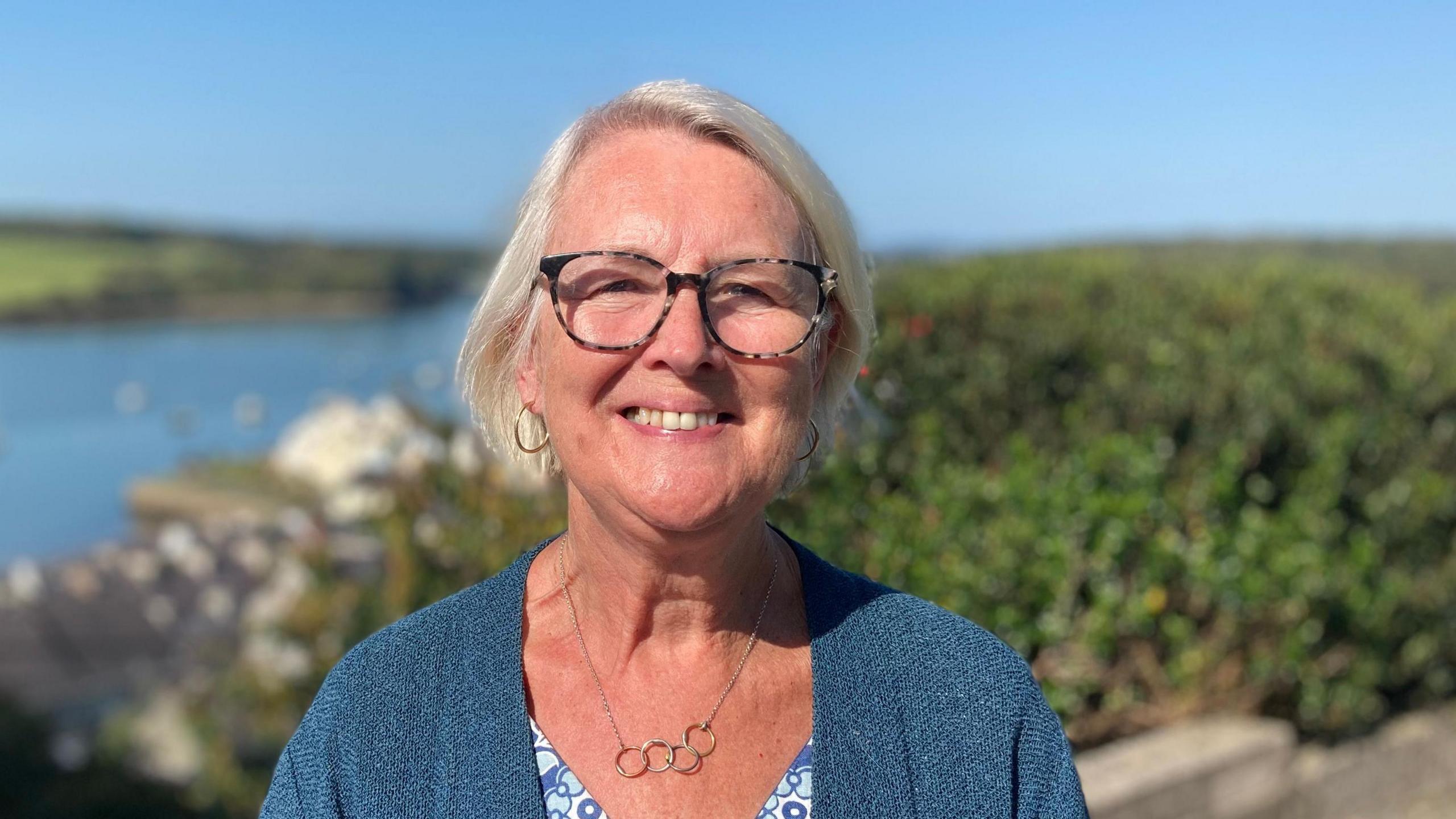Family unable to see a dentist in four years

Kelly O'Donnell says not being able to register with an NHS dentist is "incredibly worrying"
- Published
A woman says she and her family have been unable to see an NHS dentist for more than four years.
Kelly O’Donnell’s lifelong dental practice became private in 2021 and the 41-year-old has searched for a new NHS dentist since then without success.
The mother-of-four from Bethel near Caernarfon, Gwynedd, says seeing a dentist privately "simply isn’t an option because of the high costs".
The Welsh government said it did not have any definite plans to launch a second dental school in Wales, but that it was working to recruit and retain more dentists.
Only 44.8% of people in Wales received treatment through an NHS dentist between January and December 2023, official figures show.
In Ms O'Donnell’s area, the figure is 36.6%.
Arfon Member of the Senedd (MS) Sian Gwenllian is calling on the Welsh government to create a new school of dentistry in Bangor to address the problem.
Over the last four years, Ms O'Donnell has spent hours trying to register her family with an NHS dentist in her home county of Gwynedd and further afield.
"My family and I haven’t seen a dentist in over four years," she said. "I just can’t find anywhere that’s taking on new NHS patients.
"It’s worse than that. Most of them tell me they can’t even add me to their waiting list because that’s completely full too," she said.
"It’s incredibly worrying because you only get your second teeth once, and it doesn’t matter how much I tell my kids to remember to brush their teeth and not eat too many sweet things, they’re bound to go against that sometimes.
"That’s partly why you have a dentist, they can keep an eye on things and give advice.
"Kids are far more likely to listen to a dentist about their teeth than their mother," she said.
The number of dental practices open in Wales has risen gradually over the past three years to 1,434.
But that is still significantly lower than the 1,506 in 2019, before the Covid pandemic.
Dentists could give up NHS work, group warns
- Published27 February 2023
Fees will see more people pull teeth out - dentist
- Published1 April 2024
Woman takes 200-mile round trips for NHS dentist
- Published14 July 2023
There are also issues with staffing levels in the sector.
In north Wales, 41.3% of dental practices have vacancies for dentists - 10% higher than the average in Wales.
Ms Gwenllian believes creating a new dentistry school in Bangor would help solve some of the issues facing the sector.
"The dental situation, in particular people’s abilities to see an NHS dentist is an emergency, especially in north Wales," she said.
"I regularly receive messages from constituents who are unable to register with an NHS dentist or even see a dentist full stop," she added.
She said part of the problem was that the Welsh government had failed to plan appropriately for the future of Wales' medical workforce, including dentistry.
"Now we’ve reached a situation where we simply don’t have enough dentists. Creating a new dentistry school in Bangor can play a huge part in solving that issue," she said.
"More dentists would mean more appointments and lighten the load on some NHS practices both here in north Wales and further afield."

Member of the Senedd Sian Gwenllian wants the Welsh government to create a new dentistry school
Ms O'Donnell has now managed to register her youngest child, Eben, two, with an NHS dentist.
But the practice would not accept the rest of her family, including her other three sons.
"I’m worried that we could reach a point where there’s a serious issue and our only option as a family would be to go to A&E," she said.
"I’ve managed to get myself and my other three boys on a waiting list now, but we’ve been told it’ll be at least three years before we’re able to join.
"I can't afford to go private before then, I'm a single mum who's lost her husband suddenly," she said.
"It feels like we've got a system that punishes you for having less money."
She added: “I know so many others in this area who are in a similar situation. Something has to change soon, or it’ll only get worse.”
The Welsh government said it was working to recruit and retain more dentists in Wales, including through a new scheme which offers extra support for trainees in areas of Wales where it has proven difficult to recruit new dentists.
It added that it continues to work with the sector to explore how reforming the national dental contract can encourage dental practices to collaborate and best respond to the needs of their communities.